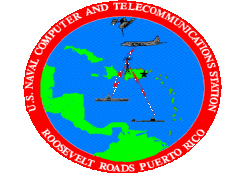
Maybe if the Navy had not been run out of there, they would have had some emergency communications.
Posted on 10/05/2017 7:30:30 AM PDT by Kaslin
I was in Ponce, on the south coast of Puerto Rico, when Hurricane Maria struck.
We had thought of everything – strong house, food, stored water, generator. But we hadn't considered overall infrastructure, especially communications. Besides there being no electricity, the municipal water system was out in our neighborhood; gas stations were closed or wrecked; and among perhaps the most critical things, radio stations were off the air, there was no internet, and there was no cell phone service.
Outside knowing we had been in a terrible storm, post-Maria life in Ponce might as well have been the aftermath of an EMP attack.
Twenty-four hours earlier, we had been in a world of the internet and powerful computers in our pockets, both able to accomplish things almost beyond imagination. Indeed, a few hours before the hurricane was expected to arrive, my son, Nathan, and I watched the computer model that predicted that the bulk of the storm would be to the north of us, that we would have winds no more than perhaps 60 to 85 miles per hour. No picnic, to be sure, but certainly not the Category 5 storm we experienced.
After the storm, we were in the pre-telegraph early nineteenth century. Our flashy modern communications system was a house of cards that fell down all over the island.
We had no idea of what was going on. Where had Maria gone after leaving Puerto Rico? There was talk of a Hurricane Jose – was it coming this way? And people were anxious to get word to friends and family mainly back in the States. But how?
(Excerpt) Read more at americanthinker.com ...
Time to prepare for the big one.,..
Some of my Puerto Rican friends said it took over a week for them to hear from their relatives on the island.
“After the storm, Nathan repeatedly asked: “What would we have done in the 1980s?” I replied: “We would have used our reliable old landline telephones and gotten information from our phone book.”
Landlines would have been down in Puerto Rico as well.
Puerto Rico is a good example of a post EMP strike, but much worse. An EMP strike does not destroy roads and houses.
Look to Puerto Rico as an example of how people would react after an EMP strike.
Now we remember shortwave radio, and the advantages a sat-phone offers...
Welcome to life in 1880........................
And by contingency plan, I mean essential supplies in escrow, in another geographic location. A supply chain that can be invoked with several days' notice.
If you're a resident and don't have a generator (and fuel), building tools and small supplies of material, basic OTC medicines, and at least a week's supply of food and a way to purify drinking water, shame on you.
I know, Maria was a bad storm, and the island of PR is devastated. Even a personal food supply of a month might not be sufficient, but it's something.
As for their government, shame on them, big time. They should've been able to do more, but they're impoverished. If the "mayor" of San Juan is any indication of how they do things down there, it tells me all I need to know.
I guess the bitcoin was a no-go too!
HEheHEheHEheHEheHEheHEhe now Hurrucane BATE is headed tiur wat HEheHEheHEheHEheHEheHEhe.
Gee, it’s almost like living on an island in the Caribbean where hurricanes come through. They prepare for things like that.
Hurricanes hit the US all the time. The problem was the island, not the storm.
And/or get a Garmin inReach.
Have solar panels and well maintained batteries to run the stuff.
Store some extra solar panels where you will be sheltering.
No simple lopo AM, CB or FRS there?
A portable ham radio would have come in handy.
It’s hard to believe that the whole island did not have at least one or two AM radio stations that could survive a big storm.
“It’s hard to believe that the whole island did not have at least one or two AM radio stations that could survive a big storm.”
That went out of style with Clinton’s “Peace Dividend”.
Without electrfonics they don’t exist
And a couple of spare antennas, for when the storm blows your regular antenna off the roof.

Maybe if the Navy had not been run out of there, they would have had some emergency communications.
This seems rather excessive. A good radio can pick up signals for hundreds of miles — I would be surprised if, at night, you can’t catch a Florida station in Puerto Rico.
And of course, if you were really prepping, you’d have an actual shortwave receiver, which can get signals for thousands of miles.
Heck, my son was on a 10-day trip rafting in Alaska, and for most of the trip they had no cell service and were cut off from the world, had no running water, no electricity except what they brought with them. That is not really a problematic state to be in.
I’ve got a set of nice GRS walkie-talkies that will let me and my family communicate in a 5-mile radius, useful for venturing out if there is no cell service.
Give me a day and I could BUILD an AM station that could broadcast 100 miles. We built AM transmitters in high school. We built Ham radios too.
Nobody on the island had marine band radios? Don’t they have small watercraft?
Disclaimer: Opinions posted on Free Republic are those of the individual posters and do not necessarily represent the opinion of Free Republic or its management. All materials posted herein are protected by copyright law and the exemption for fair use of copyrighted works.